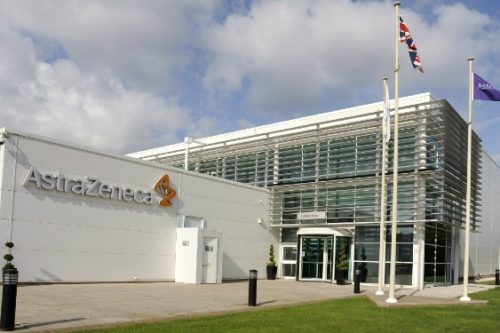Pharma giant AstraZeneca reports big rise in annual revenues and profits

Revenues and profits both jumped at pharmaceutical group, AstraZeneca, it revealed today, in final results for the 2024 financial period.
Total revenues were $54.073bn, compared with $45.811bn the previous year, a 21% increase on constant exchange rates.
Profit before tax was $8.691bn, up from $6.899bn the previous year, a 38% improvement.
The group, which pulled out of a planned £450m investment in a new vaccine plant in Liverpool last week, blaming a reduced subsidy from the UK government, said revenues were driven by a 19% increase in Product Sales, continued growth of partnered medicines and the achievement of sales-based milestones.
A second interim dividend has been declared, of $2.10 per share, making a total annual dividend declared for 2024 of $3.10 per share, an increase of seven per cent.
The dividend is to be further increased in financial year 2025, in which the group expects total revenues will increase by a high single-digit percentage.
Chief executive, Pascal Soriot, said: “Our company delivered a very strong performance in 2024 with total revenue and Core EPS (earnings per share) up 21% and 19%, respectively.
“We also delivered nine positive high value Phase III studies in the year, which, coupled with increasing demand for our medicines in all key regions, will help sustain our growth momentum into 2025.
“This year marks the beginning of an unprecedented, catalyst-rich period for our company, an important step on our Ambition 2030 journey to deliver $80bn total revenue by the end of the decade.”
He added: “In 2025 alone, we anticipate the first Phase III data for seven new medicines, along with several important new indication opportunities for our existing medicines.
“We are also investing in, and making significant progress, with transformative technologies that have the potential to drive our growth well beyond 2030, many of which have now entered pivotal trials.”
AstraZeneca operates key sites in Macclesfield and in Speke, south Liverpool, employing a total of around 4,700 staff.
The Speke vaccine plant, which employs 400 staff, was earmarked for expansion in the March 2024 Budget of the then ruling Conservative Party, which confirmed financial support towards the £450m project.
The investment would have led to a further 100 jobs at the site.
But reports of a rift between the new Labour Government and the drugs giant emerged soon after Labour took power last July, with delays to the funding process angering AstraZeneca.
It was reported that AstraZeneca was hoping for up to £100m of government support for the expansion. But Chancellor Rachel Reeves is believed to have slashed that by at least half.
Last Friday (January 31) AstraZeneca confirmed it had decided not to proceed with its Speke plans, blaming delays by the Government in confirming any financial support, and a cut in the value of the funding.
A group spokesperson said: “Following discussions with the current government, we are no longer pursuing our planned investment at Speke.
“Several factors have influenced this decision including the timing and reduction of the final offer compared to the previous government’s proposal.”
The spokesperson said the site would continue to produce flu vaccines.
A government spokesperson said a “change in the make-up of the investment” proposed by AstraZeneca had “led to a reduced government grant offer being put forward”.
They added: “All government grant funding has to demonstrate value for the taxpayer and, unfortunately, despite extensive work from government officials, it has not been possible to achieve a solution.
“AstraZeneca remains closely engaged with the Government’s work to develop our new industrial strategy, and more broadly we continue to have a thriving life sciences sector, worth £108bn to the economy and providing over 300,000 highly skilled jobs across the country.”
Andrew Griffith, Shadow Business Secretary, said: “There’s no vaccine for incompetence. In the same week they talked about growth, Labour seem to have fumbled a deal with AstraZeneca, one of the UK’s largest companies and central to the critical life sciences sector.”
Russ Mould, investment director at Manchester investment platform, AJ Bell, said: “AstraZeneca is in rude health. It has delivered a solid set of numbers, beating market expectations on both the revenue and earnings lines.
“A good run of Phase III trials during the year bodes well for converting the pipeline of drug developments into the next generation of products to sustain earnings growth. Having something else ready on the conveyer belt is paramount to the success of pharma companies as they face patent cliffs.
“China import-related tax issues won’t derail the business. They’re just noise and any fines will be small fry relative to the typical outflows from a company the size of AstraZeneca.”
He added: “Unlike GSK, which delivered a lopsided performance thanks to weakness in its vaccines arm, AstraZeneca looks more balanced with gains recorded across all therapy areas.
“So far, so good, yet AstraZeneca needs to sustain this strong momentum if it is to achieve ambitious medium term goals.”







